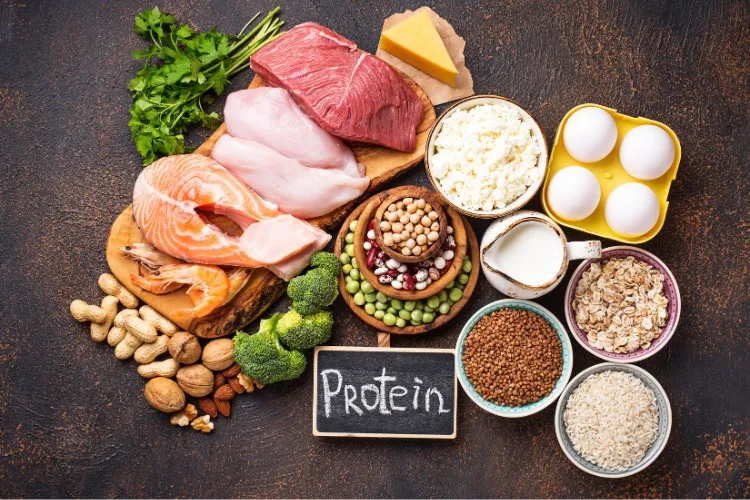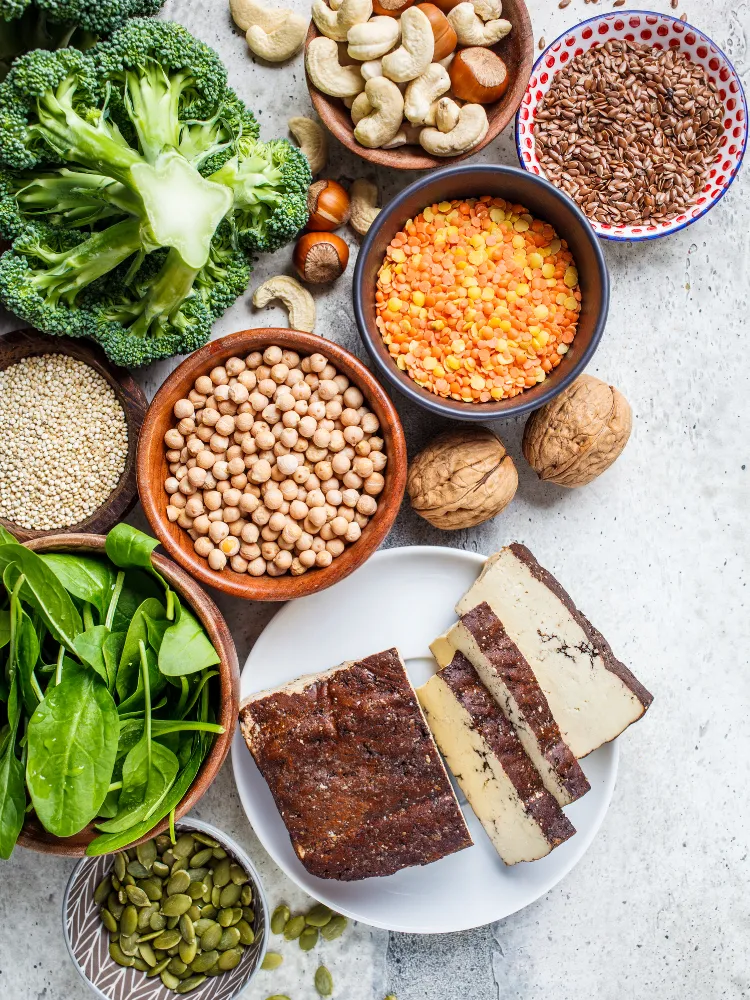How much protein should I eat? What exactly is protein, and how does it affect our body? We’ve all seen numerous ads promoting protein bars, protein shakes, and the “rich in protein” labels on our regular food. Surely we’re getting enough of it. But how much is too much? Is there even such a thing? In a recent podcast, the world-renowned nutritional scientist Christopher Gardner addressed the misconceptions about protein and the reality most of us don’t know. Let’s dive in, shall we?
What is Protein?
Our food consists of 3 macronutrients – carbs, fats, and protein. While fat and carbohydrates give us the necessary fuel to power through the day, proteins are the building blocks that maintain the function and structure of our body. There are over 10 000 types of proteins that can be found in our bones, muscles, skin, hair, nails, and everywhere else. Proteins are built on a foundation of amino acids. There are 20 + amino acids that act as building blocks, some of which are produced naturally in our bodies, and others are created by reshaping already existing ones. There are 9 essential amino acids:
- histidine
- leucine
- lysine
- isoleucine
- methionine
- threonine
- tryptophan
- phenylalanine
- valine
All of them can and must be delivered to our bodies with food.
How Much Protein Should I Eat?
In a recent podcast with Jonathan Wolf, nutritional scientist Christopher Gardner shared that, according to recent US data, Americans consume twice the RDA of protein. It’s important to remember that the RDA (Recommended Dietary Allowance) is not an individual, but a population health approach. According to the National Academy of Medicine, the maximum recommended amount of protein is 0.8 grams per kilogram per day. This is the sufficient quantity that anyone in the world needs.
How Much Protein Do We Consume with Our Daily Calorie Intake?
Christopher Gardner shares that, according to research studies, most people receive 16-18% of their daily calorie intake from protein. Gardner and his team of researchers have conducted a study showing that in the US on average women consume 2500 calories per day, and men consume 3000 calories per day. If we take 16-18% out of these numbers we’ll see that on average people get 1.5 grams of protein per kg body weight only from food. This is double the RDA.
What’s the Healthiest Source of Protein?
According to Christopher Gardner, the healthiest and most delicious sources of protein are:
- beans (in soup and salad)
- hummus
Read also: Protein rich foods – improve your daily menu with high-protein diet
How Much Protein Do I Need if I Go to The Gym?
For those who go to the gym, 0.8 grams of protein per kg per day is enough to meet your needs for enzymes, hormones, and healthy fingernails and hair growth. But what do you do when you want to put on muscle? Well, in this case, you are going to need more than the RDA of 0.8 grams of protein. How many more extra grams would you need?
Here’s an example that Christopher Gardner shared in the podcast: Let’s say that your goal is to put on 10 kg of muscle in 1 year. Due to the fact that 70% of your muscle is water, in order to achieve that goal, you have a pretty simple task. All you have to do is accumulate 3000 grams of EXTRA amino acids. When you divide 3000 grams of amino acids into 365 days of the year, the results will shock you! They show that you will need roughly an extra 10 grams of protein per kg a day to retain, as well as meeting your maintenance needs in order to put on the desired muscle weight.
Note: This is an approximate evaluation that is not 100% valid for every person. During the process of lifting weights and working out in the gym, you are breaking down some muscles using amino acids, so they’ll need to be replaced. To do that, you can add a total of 20 grams of protein per kg per day to your diet.
Keep in mind that when you work out, you also consume more food. This means that your daily intake goes above the average 2500/3000 calories. If you’ve been led to believe that you need to consume protein shakes and bars in order to build muscle, unlearn this NOW! The more you work out, the more food you consume, hence you’re naturally getting all the protein that you need through your food.
What Would Happen if You Take More Protein Than You Need?
There is no protein storage in your body. What this means is that every bit of it at the end of the day gets turned into carbs and fat. This happens regardless of the form it was consumed in – regular food, protein bars, shakes, or pills. How does this happen? The nitrogen from the protein gets taken off, the liver turns it into ammonia, and the kidney excretes it and gets it out of your body.
Read also: What Are the Most Common Protein Deficiency Symptoms and How to Eat Enough Protein?



